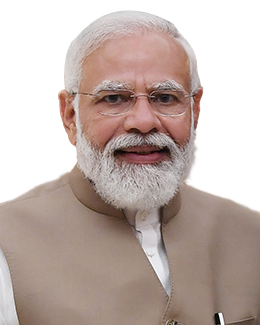THE RISE OF NARENDRA DAMODAR DAS MODI
Narendra Modi is an Indian politician who has been a prominent figure in Indian politics for several decades. Here's an overview covering various aspects of his life and career.
Early Life:
- Narendra Damodardas Modi was born on September 17, 1950, in Vadnagar, Gujarat, India.
- He comes from a humble background and belonged to a family of grocers.
- Modi helped his father run a tea stall during his childhood.
Education:
- He completed his higher secondary education in Vadnagar.
- Modi holds a Bachelor's degree in Political Science from the University of Delhi.
- He also completed a Master's degree in Political Science from Gujarat University.
Political Career:
- Rise in RSS and BJP:
- Modi joined the Rashtriya Swayamsevak Sangh (RSS), a Hindu nationalist organization, in his youth.
- He later became associated with the Bharatiya Janata Party (BJP), the political arm of the RSS.
- Modi held several positions within the BJP, including organizing secretary of the Gujarat unit and national general secretary.
2.Chief Minister of Gujarat:
- Modi served as the Chief Minister of Gujarat from 2001 to 2014.
- His tenure was marked by both economic development initiatives and controversies, particularly related to the 2002 Gujarat riots.
3.Prime Minister of India:
- Modi led the BJP to a significant victory in the 2014 Indian general elections.
- He became the 14th Prime Minister of India on May 26, 2014, and was re-elected for a second term in 2019.
- As Prime Minister, Modi implemented various economic and social policies, including the Goods and Services Tax (GST) and demonetization.
- His government also focused on initiatives such as Make in India, Digital India, Swachh Bharat Abhiyan (Clean India Campaign), and Jan Dhan Yojana (financial inclusion program).
- Modi is known for his strong nationalist and pro-Hindutva stance.
- He has been featured in TIME magazine's list of the 100 most influential people multiple times.
- Under his leadership, India saw advancements in areas like renewable energy, foreign policy, and digital governance.
Controversies:
- Modi's role in the 2002 Gujarat riots, where over a thousand people, mostly Muslims, were killed, has been a subject of controversy and criticism.
- His government's policies, such as demonetization and the implementation of the Goods and Services Tax (GST), have faced mixed reactions and criticism.
Leadership Style:
- Modi is known for his strong and decisive leadership style, often characterized by his hands-on approach to governance.
- He emphasizes efficiency, accountability, and results-oriented policies in government functioning.
- His speeches and public addresses are often energetic and motivational, aimed at inspiring the public and rallying support for his initiatives.
Economic Reforms:
- As Prime Minister, Modi initiated several economic reforms aimed at boosting growth, attracting investment, and improving the business environment in India.
- Key initiatives include the introduction of the Goods and Services Tax (GST) to streamline indirect taxation, the Insolvency and Bankruptcy Code (IBC) to address non-performing assets in the banking sector, and various measures to promote ease of doing business.
- Modi's government also focused on infrastructure development, including the construction of highways, railways, and urban infrastructure projects.
Foreign Policy:
- Modi's foreign policy approach has been marked by an emphasis on strengthening India's global position, enhancing diplomatic relations with key countries, and promoting economic diplomacy.
- He has engaged in high-profile visits to various countries, including the United States, Russia, China, and Israel, to strengthen bilateral ties and explore opportunities for cooperation.
- Modi has also been active in multilateral forums such as the G20, BRICS, and ASEAN, advocating for India's interests on international platforms.
Digital Initiatives:
- Modi's government launched several digital initiatives aimed at leveraging technology for governance and public service delivery.
- The Digital India program focused on promoting digital literacy, expanding broadband connectivity, and delivering government services electronically.
- Initiatives like the Aadhaar biometric identification system, Unified Payments Interface (UPI) for digital payments, and the National Fiber Optic Network (BharatNet) have been key components of India's digital transformation under Modi's leadership.
Environmental and Renewable Energy Initiatives:
- Modi has emphasized the importance of environmental sustainability and renewable energy as part of India's development agenda.
- His government launched initiatives such as the International Solar Alliance (ISA) to promote solar energy cooperation among countries.
- India's commitment to renewable energy targets, including the ambitious goal of achieving 175 GW of renewable energy capacity by 2022, reflects Modi's focus on clean energy and climate change mitigation.
Public Outreach and Communication:
- Modi has been active in leveraging social media and digital platforms to communicate directly with the public and promote government initiatives.
- He is one of the most-followed world leaders on platforms like Twitter, using them to share updates, engage with citizens, and solicit feedback.
- Modi's communication strategies have played a significant role in shaping public perception and mobilizing support for his policies and campaigns.
Personal Life:
- Narendra Modi has been associated with a disciplined and frugal lifestyle. He reportedly wakes up early in the morning and practices yoga, which he has promoted as part of India's cultural heritage on the international stage.
- Modi is known for his strong work ethic and dedication to his responsibilities as a leader. He has often emphasized the importance of hard work, perseverance, and self-reliance in his speeches and interactions with the public.
- His family background and early experiences, such as working at his father's tea stall, have influenced his approach to governance and policies aimed at empowering small businesses and entrepreneurs.
Cultural and Nationalistic Identity:
- Modi's leadership is closely linked to his identity as a proud Indian and advocate of Hindu nationalism. He has promoted cultural symbols, traditions, and historical narratives that resonate with India's rich heritage.
- Initiatives like the Swachh Bharat Abhiyan (Clean India Campaign), promotion of traditional Indian textiles and handicrafts, and celebration of national events and festivals have been part of his efforts to strengthen national identity and pride.
Women Empowerment and Social Welfare:
- Modi's government has launched several initiatives focused on women's empowerment, such as Beti Bachao Beti Padhao (Save the Daughter, Educate the Daughter) program, which aims to improve the welfare of girls and women and promote their education.
- Other social welfare schemes, including the Pradhan Mantri Ujjwala Yojana (PMUY) for providing LPG connections to households below the poverty line and the Ayushman Bharat scheme for healthcare coverage, reflect Modi's emphasis on social inclusion and welfare.
Response to COVID-19 Pandemic:
- Narendra Modi's leadership during the COVID-19 pandemic garnered attention both domestically and internationally. His government implemented nationwide lockdowns and measures to contain the spread of the virus, although these actions faced criticism for their economic impact and challenges in implementation.
- Modi also launched the Aatmanirbhar Bharat Abhiyan (Self-Reliant India Campaign) to boost domestic production and reduce dependency on imports, particularly in critical sectors like healthcare and manufacturing.
Criticisms and Challenges:
- While Modi enjoys strong support from many segments of Indian society, his leadership has also faced criticism on various fronts.
- Critics have raised concerns about issues such as religious intolerance, freedom of expression, human rights violations, and the handling of economic challenges, including unemployment and agrarian distress.
- The government's policies, such as the Citizenship Amendment Act (CAA) and the National Register of Citizens (NRC), have been controversial and sparked nationwide debates and protests.
International Relations and Diplomacy:
- Narendra Modi's foreign policy approach has focused on enhancing India's strategic partnerships, fostering economic cooperation, and addressing global challenges.
- His engagements with world leaders, participation in international summits, and efforts to strengthen ties with countries in regions like Southeast Asia, the Middle East, and Africa have contributed to India's presence on the global stage.
- Modi has also emphasized India's role as a responsible global actor, advocating for issues such as climate change mitigation, sustainable development, and counterterrorism cooperation.
Legacy and Future Outlook:
- Narendra Modi's legacy as Prime Minister will continue to evolve as his tenure progresses and new challenges emerge.
- His leadership style, policy priorities, and approach to governance will shape India's trajectory in areas such as economic development, social welfare, environmental sustainability, and international relations.
- The upcoming years are likely to see continued efforts to address key issues facing India, including economic recovery post-pandemic, employment generation, agricultural reforms, and inclusive development.



Comments
Post a Comment